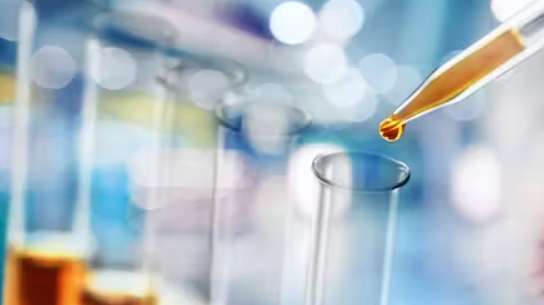In today's interconnected world, industrial chemicals play a pivotal role in shaping various sectors, from manufacturing and agriculture to healthcare and technology. Understanding the most common industrial chemicals is crucial for professionals and enthusiasts alike. In this article, we delve into the realm of industrial chemistry to uncover the five most prevalent and influential chemicals that drive modern industries forward.
- Polyethylene (PE):
Polyethylene, a versatile thermoplastic polymer, takes the lead as one of the most widely used industrial chemicals. Its exceptional properties, including flexibility, durability, and resistance to chemicals, make it indispensable in countless applications. From packaging materials and plastic bags to automotive components and electrical insulation, PE's ubiquity stems from its ability to adapt to diverse industrial needs. - Sulfuric Acid (H2SO4):
Known as the "king of chemicals," sulfuric acid holds a prominent position in various industries. This highly corrosive and strong acid finds applications in metal processing, petroleum refining, and fertilizer production. Additionally, it plays a crucial role in battery manufacturing, wastewater treatment, and even the production of detergents and dyes. The versatility and reactivity of sulfuric acid make it an essential component in numerous industrial processes. - Ammonia (NH3):
Ammonia, a compound composed of nitrogen and hydrogen, is a vital industrial chemical with a wide range of applications. Its primary use lies in the production of fertilizers, where it serves as a key ingredient in nitrogen-based compounds. Moreover, ammonia plays a crucial role in refrigeration systems, cleaning agents, and the synthesis of various pharmaceuticals and polymers. Its importance in agriculture and chemical manufacturing solidifies its position among the top industrial chemicals. - Ethylene (C2H4):
Ethylene, a gaseous hydrocarbon, holds immense significance in the petrochemical industry. It serves as a building block for the production of various plastics, including polyethylene, polyvinyl chloride (PVC), and polystyrene. Ethylene's versatility extends beyond plastics, as it also finds applications in the synthesis of solvents, detergents, and synthetic fibers. The widespread use of ethylene underscores its vital role in modern industrial processes. - Hydrochloric Acid (HCl):
Hydrochloric acid, a strong and highly corrosive acid, is a fundamental industrial chemical with diverse applications. It plays a crucial role in metal cleaning and pickling, ore processing, and the production of various chemicals, including PVC and pharmaceuticals. Hydrochloric acid's ability to dissolve metals and adjust pH levels makes it indispensable in numerous industrial sectors, including steel manufacturing, water treatment, and food processing.
Conclusion:
The world of industrial chemicals is vast and complex, with numerous compounds shaping modern industries. In this article, we explored the top five most common industrial chemicals: polyethylene, sulfuric acid, ammonia, ethylene, and hydrochloric acid. These chemicals find applications in a wide range of sectors, from packaging and agriculture to manufacturing and healthcare. Understanding their properties, uses, and significance is essential for professionals and enthusiasts seeking to comprehend the intricate web of industrial chemistry. By harnessing the power of these chemicals responsibly, industries can continue to innovate and drive progress in the ever-evolving global landscape.

